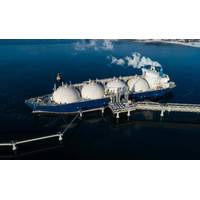U.S. Senate Moves To Debate Energy Savings Bill; Keystone Bid Stalls
The U.S. Senate agreed on Tuesday to advance a bipartisan energy efficiency bill, but it could die unless lawmakers end a stalemate on how to proceed with the long-delayed Keystone XL oil pipeline project.
The Senate voted 79-20 to move toward a debate on the energy bill, making it the first big energy legislation to reach the Senate floor since 2007.
Sponsored by Democratic Senator Jeanne Shaheen of New Hampshire and Republican Senator Rob Portman of Ohio, the White House-backed bill would save energy through tougher building codes and by making the federal governmentinstall new technologies.
Majority Leader Harry Reid, a Nevada Democrat, has offered to hold a vote on a separate bill to provide congressional approval of Keystone if Republicans allow passage of the energy measure, a version of which has already passed the House of Representatives.
But Republicans want to add amendments, including one that would take the decision on TransCanada's Corp's Keystone pipeline out of President Barack Obama's hands and give it to Congress.
Late on Tuesday, Republicans reiterated their demand for amendments, and Reid made it clear he does not intend to permit any.
The stalemate could end up killing the energy bill and preventing a vote on Keystone. Democrats hold the Senate by a 55-45 margin, but 60 votes are needed to end Republican procedural hurdles and clear the way for passage of legislation.
The State Department recently delayed a decision on Keystone, likely until after the November congressional elections.
A Senate Republican aide said it was increasingly appearing that talks to get a vote on Keystone had stalled.
The aide said some Republicans have concluded that the main benefit of a vote on Keystone would be to boost the re-election chances of Democratic Senator Mary Landrieu of Louisiana.
Landrieu has long called on the Obama administration to approve Keystone. Some Republicans fear that such a vote in the Senate could support her central campaign theme of being an effective senator.
But other Republican aides said their party would welcome a Keystone vote.
The pipeline would bring more than 800,000 barrels per day from Canada's oil sands to refineries in Texas.
Environmentalists oppose Keystone because they say it would lead to more spills and emissions linked to climate change. Backers say it would strengthen North American energy security and create thousands of construction jobs.
Even if Congress passes legislation to approve Keystone, Obama could veto the measure and likely would have the votes to sustain a veto.
Other amendments that Republicans want to offer include one to block new emission standards for coal-powered plants, to allow export of liquefied natural gas and to prevent imposition of a federal tax on carbon pollution.
Shaheen said her bill would save consumers and businesses $16 billion a year in energy use and create jobs. The bill has wide support from environmental and business groups.
"The time is now for the Senate to pass this bill," Shaheen said on the Senate floor. "We can't let extraneous debate on amendments to get in the way of getting this legislation done." (Reporting by Thomas Ferraro, Timothy Gardner and Richard Cowan; Editing by Ros Krasny and Dan Grebler)




